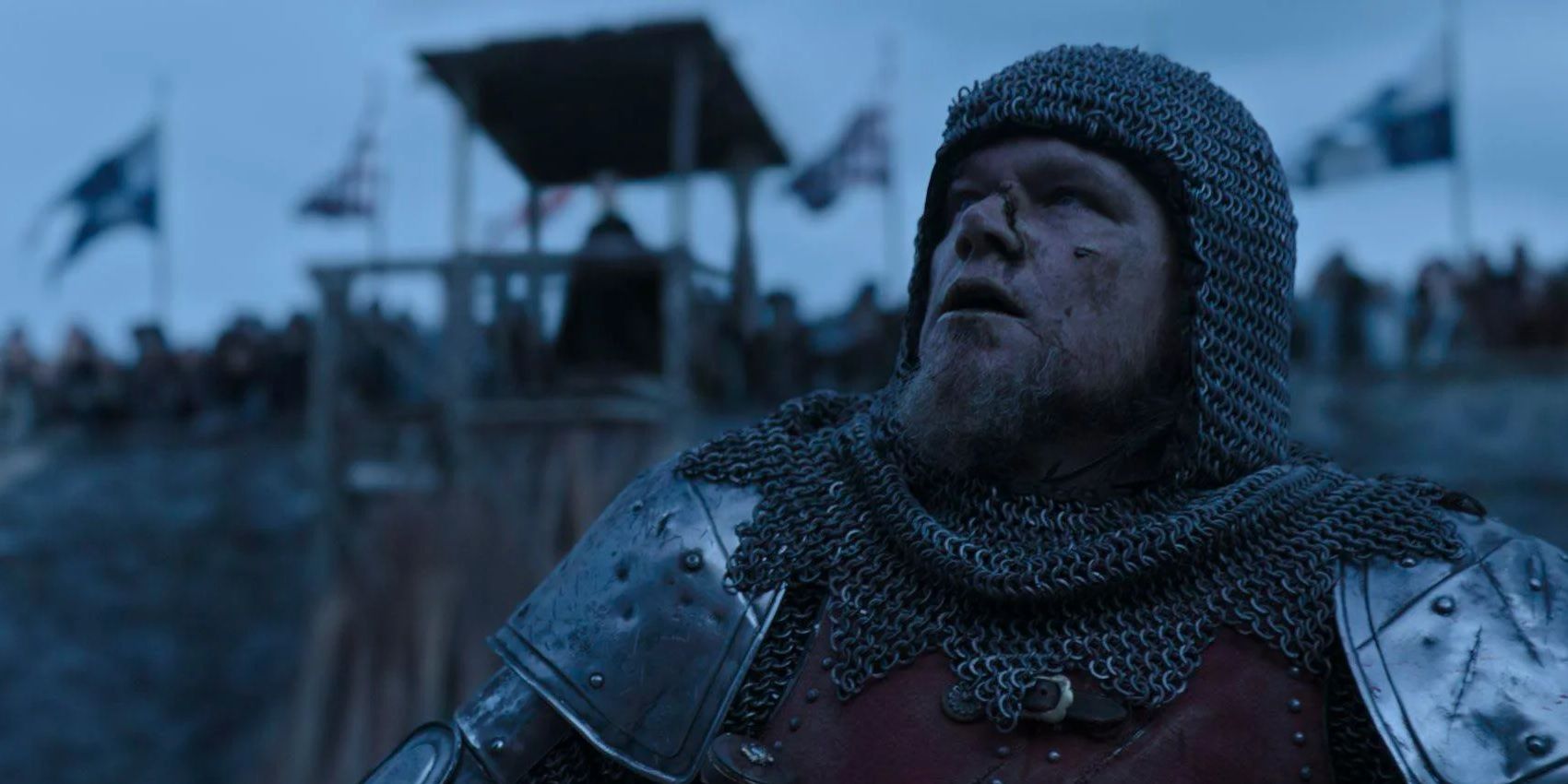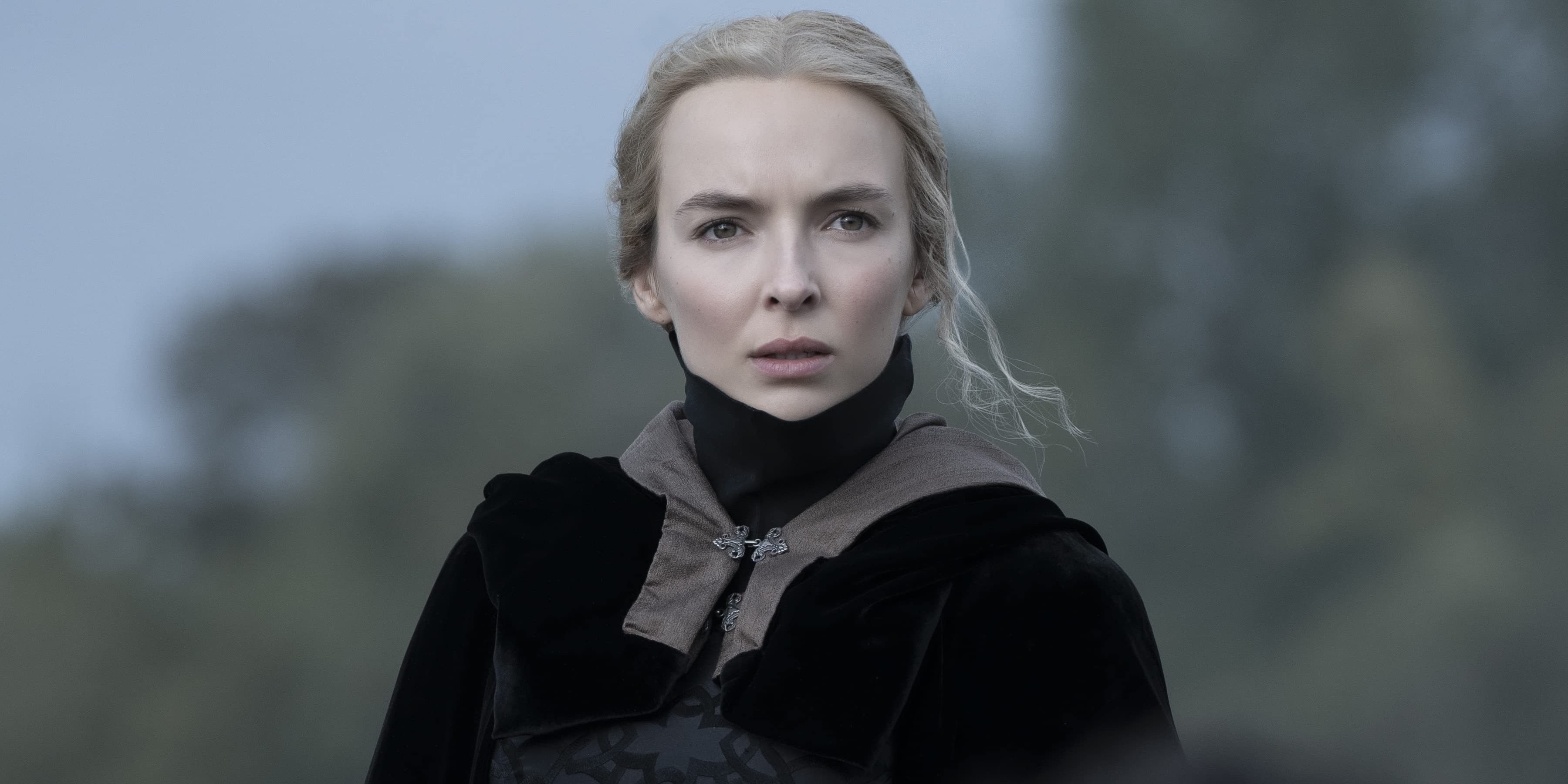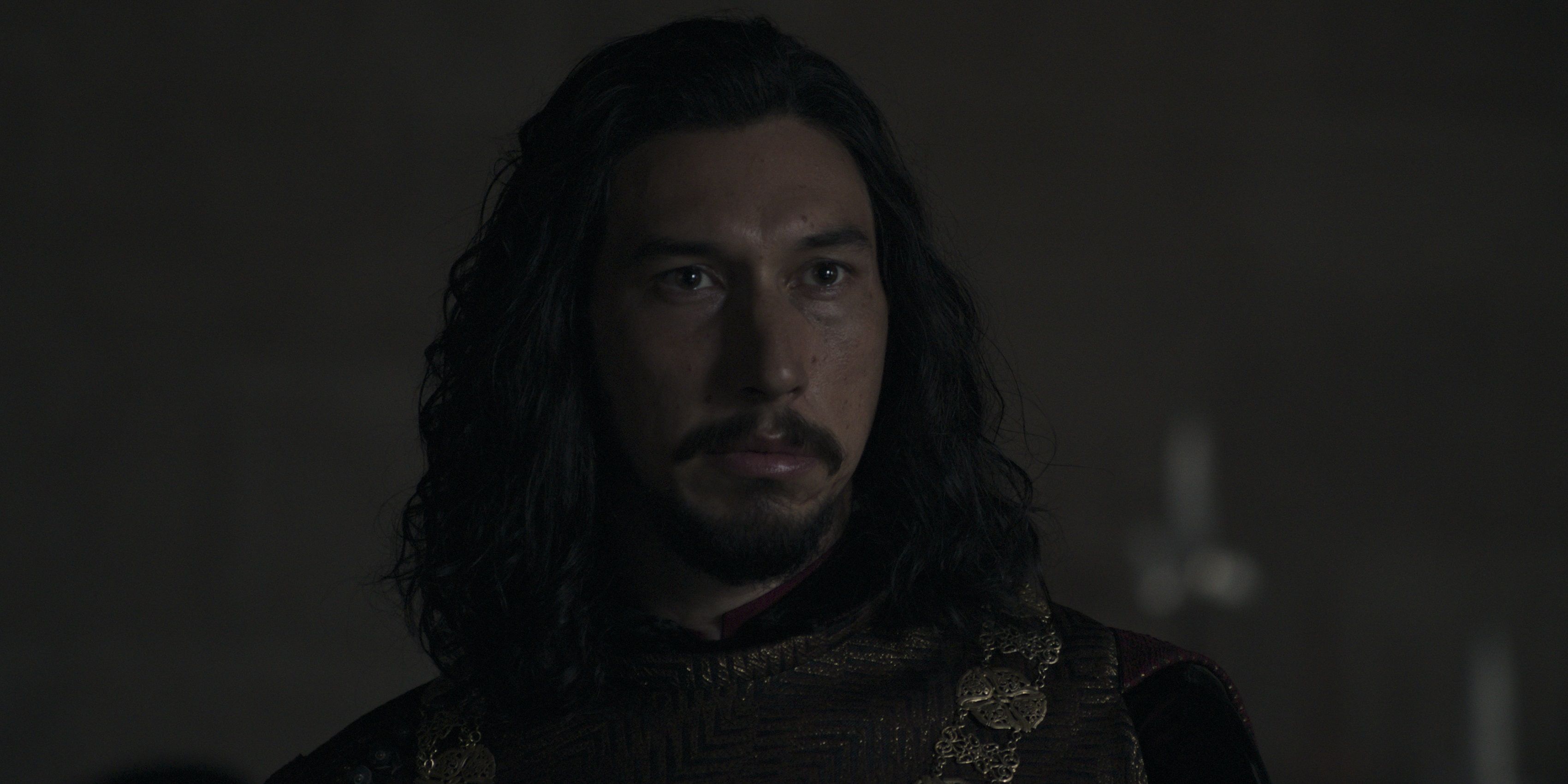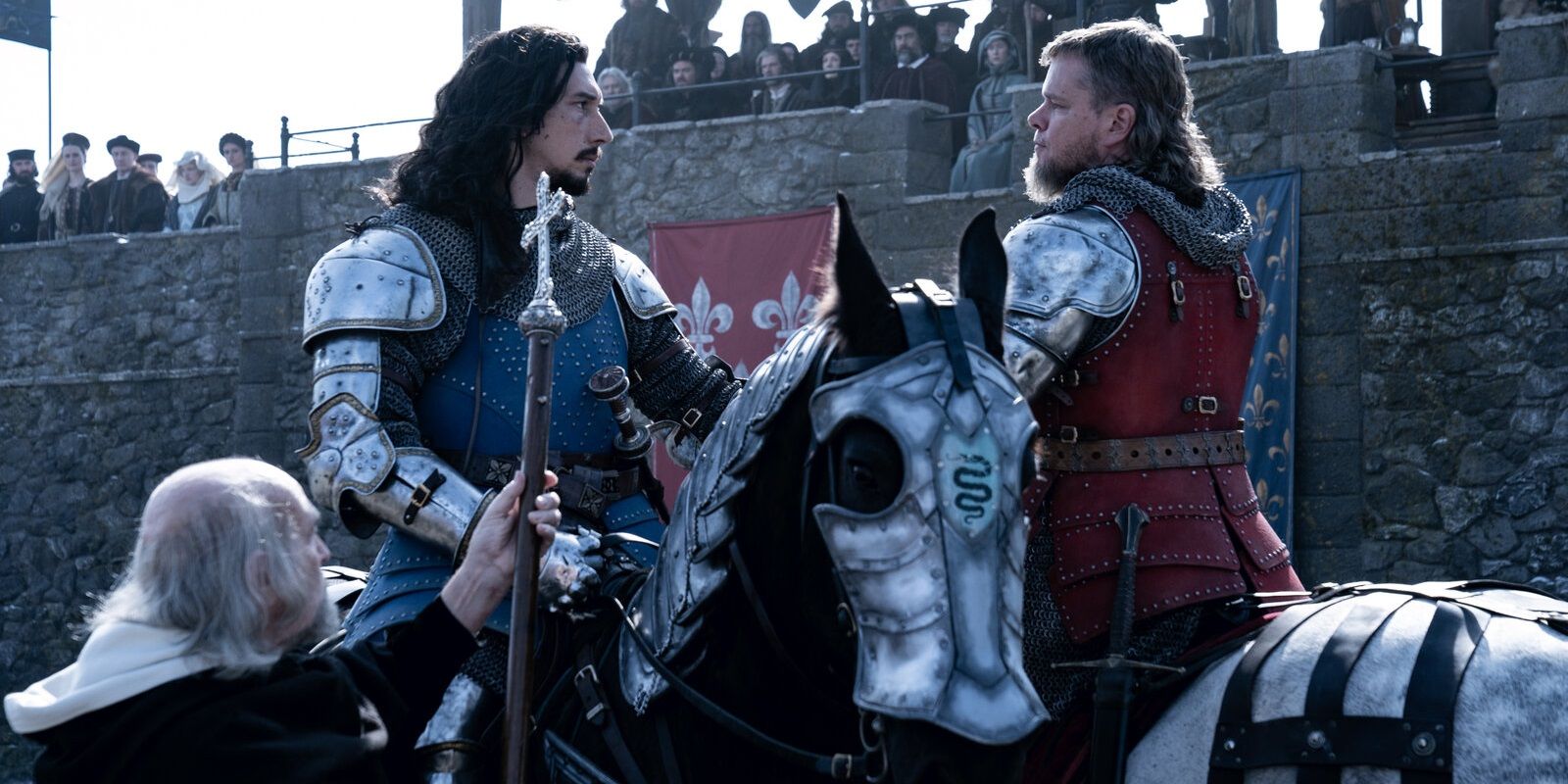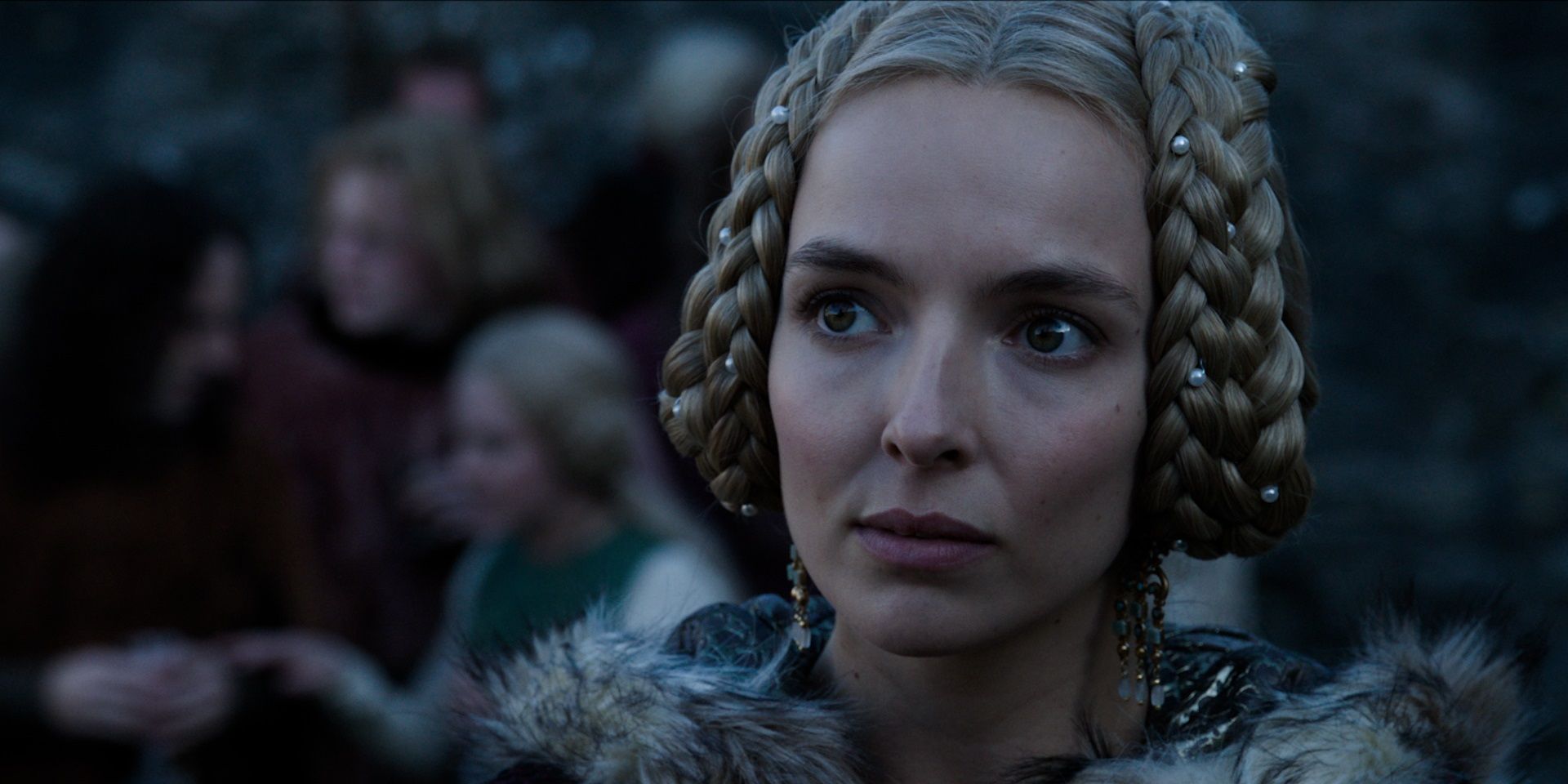Ridley Scott’s latest medieval epic The Last Duel takes audiences back to 1386 to tell a story that couldn’t be more relevant today. Based on the last officially sanctioned duel in French history, the movie sees Lady Marguerite de Carrouges (Jodie Comer) accusing her husband’s former friend Jacques Le Gris (Adam Driver) of a heinous crime and having that allegation promptly rebutted by the accused’s powerful friends.
To circumvent this corrupt system, Marguerite’s husband Jean (Matt Damon) goes straight to French Parliament to challenge Jacques to trial by combat. Since it’s believed that God will favor the knight telling the truth, this duel will determine whether the allegation is true. And as if the stakes of a fight to the death weren’t high enough, if Jean loses, supposedly revealing the allegation to be false, Marguerite will be burned alive.
Conflicting accounts of sexual assault are often dismissed under the “he said, she said” banner. This was one of the biggest hurdles faced by the #MeToo movement, a clear influence on this film. The Last Duel puts the “he said, she said” label under a microscope by telling its story from multiple perspectives. This technique has obvious parallels with Akira Kurosawa’s groundbreaking masterpiece Rashomon. But whereas most films inspired by Rashomon have used its multi-perspective style as a gimmick, it’s extremely effective here. The film is separated into chapters, like a Tarantino movie, with each chapter bearing the title: “The truth according to...” followed by the focal character’s name. When the last chapter finally tells the story from Marguerite’s perspective, the words “the truth” poignantly linger on-screen.
This subject matter is very delicate, and The Last Duel is far from heavy-handed. Matt Damon and Ben Affleck, in their first screenwriting collaboration since their Oscar-winning script for Good Will Hunting, knew they needed a female perspective to tell this story right, so they brought on indie darling Nicole Holofcener as a co-writer. Scott has directed some of the most acclaimed feminist movies of all time – Alien, G.I. Jane, Thelma & Louise – and, despite the two dueling men at the heart of the action, the director recognizes that this is Marguerite’s story.
Scott is, above all, a visual filmmaker. From Blade Runner’s mind-bending vision of a futuristic metropolis to Black Hawk Down’s visceral recreations of real-life war efforts, Scott’s filmography is filled with unforgettable imagery. The poignant themes of The Last Duel are bolstered by a breathtaking visual style. The movie’s bleak color palette, massive sets, and authentic costumes bring medieval France to life. The night-time domestic scenes lit by candlelight evoke the oil-painting aesthetic of Stanley Kubrick’s Barry Lyndon.
In a lot of medieval battle sequences, the details of the violence are lost in the frenzied, widespread melee. In The Last Duel’s masterfully crafted battle scenes, Scott cuts between wide shots providing clarity on the action and chaotic closeups filling in those grisly details with knife fights in the mud and stunning splashes of crimson blood.
It takes a couple of scenes to get over the strange half-English, half-American accent that everyone in the cast adopts in lieu of their characters’ native French accents, but this movie is filled with incredible performances. Driver does a fantastically nuanced job of playing a villain who doesn’t believe he’s a villain. Damon’s monologues are captivating and his character gets increasingly angrier at the same rate he becomes more powerless under his oppressive government. Affleck has a lot of fun playing the tyrannical, sex-obsessed Count Pierre as a shameless Caligula-esque powermonger.
Alex Lawther, best known for his roles in The End of the F***ing World and the “Shut Up and Dance” episode of Black Mirror, gives a disturbing, scene-stealing turn as King Charles VI. The sadistic boy-king is always stifling a smile, even during a rape trial or a brutal swordfight, and Lawther’s portrayal of these unsettling emotions has a startling naturalism.
But despite how great these actors are, Comer undeniably gives the strongest performance in the movie. The role of Marguerite gave Comer a bunch of challenging emotions to play, especially after she goes public with the accusation against Jacques. Her husband instantly accuses her of lying. She’s shamed by other women for bringing the allegation forward. There’s a particularly excruciating sequence during the trial in which Marguerite is forced to answer one loaded question after another about her sex life.
The story of a husband seeking to avenge his sexually assaulted wife by killing her attacker would carry a problematic message if not for one crucial scene. Jean believes he’s on a crusade for justice, but Marguerite points out that he’s just threatening Jacques for his own vanity. Killing Jacques won’t magically undo the crime or make her trauma go away. All he does by challenging Jacques to a duel is put their own lives in danger.
The easy approach to The Last Duel would’ve been to take a historical story with #MeToo overtones and pump out a straightforward revenge thriller in an attempt to tap into the zeitgeist. But that kind of male-driven, black-and-white approach would ignore all the complicated implications and side effects of sexual violence that the #MeToo movement sought to expose in the first place. People like to think that humanity has come a long way from its barbaric origins, but The Last Duel is here to show audiences just how little systemic misogyny has changed, even in the past 700 years.

